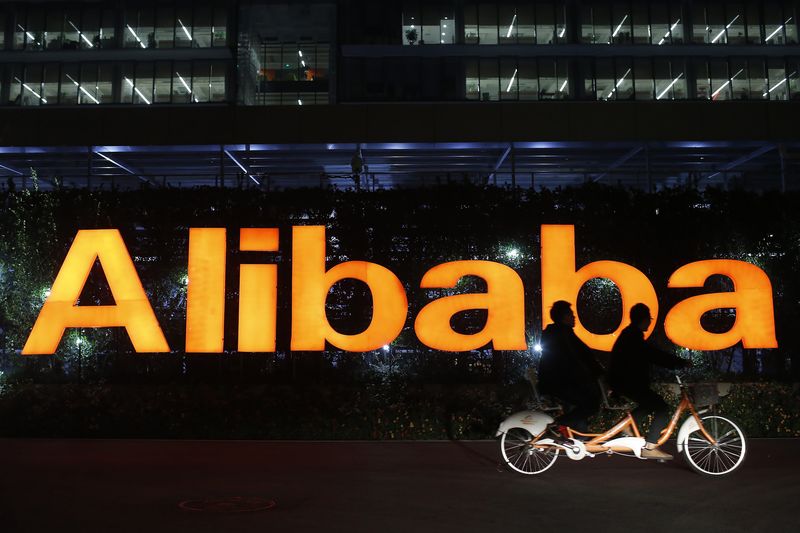Investing.com-- Chinese technology stocks plummeted on Friday, with Alibaba Group (HK:9988) (NYSE:BABA) leading losses after the e-commerce giant shelved a planned IPO for its cloud unit, citing the impact of U.S. curbs on chip exports to China.
Alibaba’s Hong Kong shares slid 10.0%, touching a one-year low, and were by far the worst performer on the Hang Seng index, which fell 1.9%.
The firm’s rivals Baidu (HK:9888) (NASDAQ:BIDU) and Tencent (HK:0700), fell 4.9% and 3.0%, respectively.
Alibaba said on Thursday that it was no longer proceeding with a planned demerger of its cloud business, citing uncertainty over the supply of chips which are crucial to the development of artificial intelligence.
The move comes after the U.S. recently increased the scope of its chip export restrictions on China amid worsening trade relations between the world’s two largest economies.
China had retaliated by curbing the export of key materials used in battery making and electronics.
Alibaba is developing its own in-house generative AI, with the cloud unit at the heart of this venture. But a lack of access to the latest chips, particularly from AI-darling Nvidia (NASDAQ:NVDA), could severely dent progress.
Nvidia recently unveiled a new flagship graphical processing unit -- the H200 -- for AI use.
U.S. export restrictions put Baidu and Tencent in the same boat. Earlier this week, Tencent warned that the curbs were likely to impact its cloud business, adding that while it had stockpiled Nvidia chips it was seeking Chinese alternatives.
A boom in AI interest has seen several major tech players racing to develop their own offerings, especially with the popularity of OpenAI’s ChatGPT. But without the chip infrastructure to support the development, Chinese firms could severely lag behind their western peers.
"With the advent of AI, and Cloud being critical infrastructure to deliver AI services, it would make sense to keep the unit within Alibaba as it can then potentially invest and deliver better shareholder returns over time," analysts at Union Bancaire Privee told Reuters.
Alibaba sees storm of selling pressure
While broader Chinese tech stocks also retreated, Alibaba’s steep losses came from a bulk of factors. The firm’s September quarter earnings were line with estimates, although its biggest market, China, saw few signs of improvement.
Alibaba also suspended plans for an initial public offering of its Freshippo groceries arm. This, along with the scrapping of the cloud unit IPO, presented fresh hurdles to its plan to split into six separate companies.
But the firm said it will prepare external fundraising for its international e-commerce unit.
Adding to the selling pressure, regulatory filings showed on Thursday that founder Jack Ma’s family trust plans to sell 10 million American Depository Receipts (ADRs) of Alibaba for about $871 million.
"Changes in the restructuring plans may have been a key reason for overnight share price weakness alongside the filing of [...] Ma," analysts at HSBC Global Research said in a note.
Alibaba’s ADRs slumped steeply on Thursday.
Scott Kanowsky contributed to this report.
